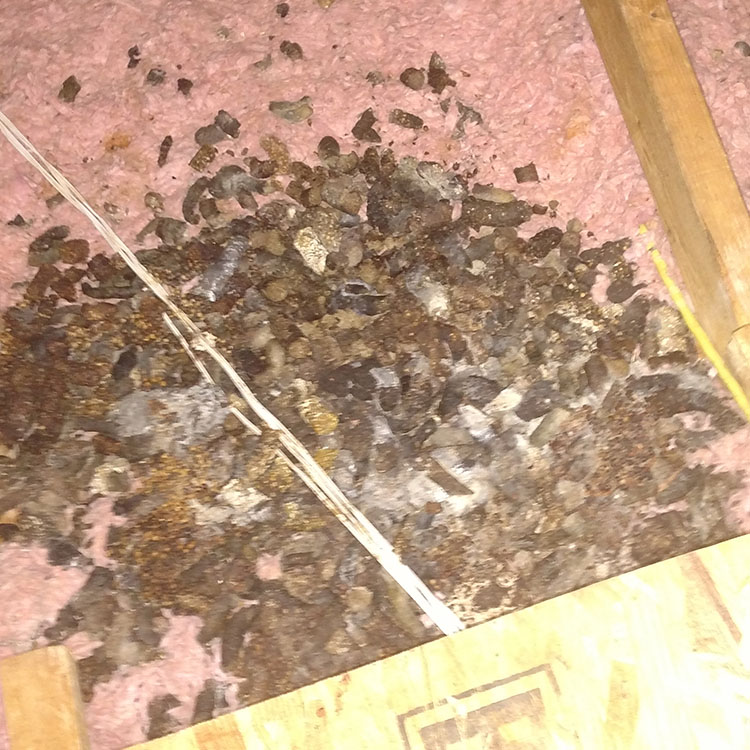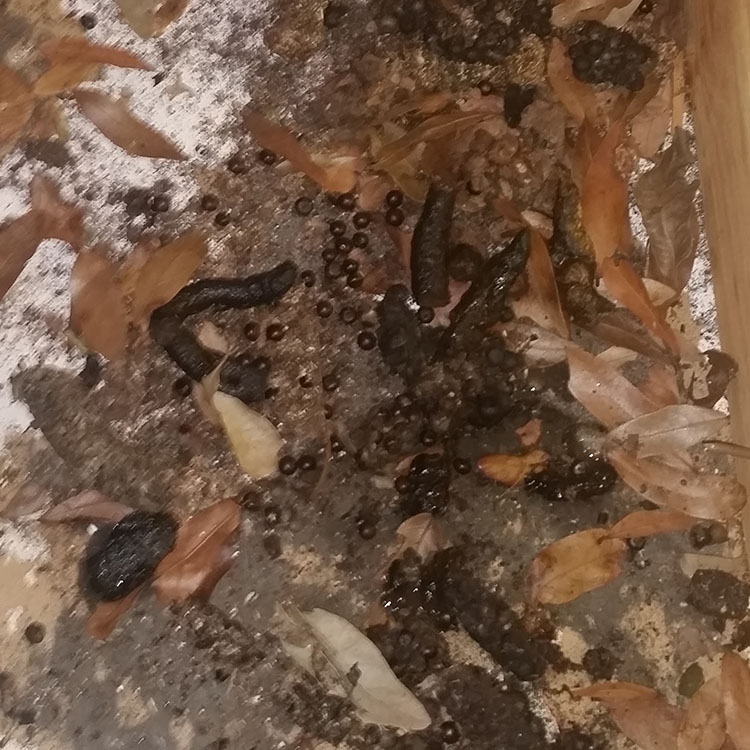Rat Poop vs. Mouse Poop
The vast majority of homeowners cannot tell the difference between rat poop and mouse poop. The feces left behind by these two different creatures will be distinguishable by a wildlife professional, and they will be able to advise you on the best possible options for removing the source of the excrement, and how to properly clean up any droppings left behind after the removal is complete.

What Does Rat Poop Look Like?
Rat excrement will be found to be very small, and have a cylindrical shape to it. Usually it is found dark brown and moist when it is fresh. Dry, dusty feces indicates that it has been there for some time. Rat droppings will usually appear about 1/2"-3/4" in length, and resemble raisins. It may be diifcult to eat raisins after finding rat feces in your home. The longer droppings are most likely a species of rat called the Norway Rat, which are larger than the Roof Rat. Roof Rat excrement is on the lower end of the scale , but will appear similar in proportion to the droppings of a Norway Rat.
What Does Mouse Poop Look Like?
Mouse poop will be very similar to rat poop, but have a smaller size overall. Mice are smaller creatures, and thus the scale of their excrement decreases with their stature. Mouse poop is found about 1/8"-1/4" in length and will be like little pellets or cylinders. It is brown or black and will have a strong odor up close if there is a lot of it.

What Do I Do if I find Rat or Mouse Poop?
Don't touch it with bare hands. Keep children and pets as far away as possible to prevent the spread of disease associated with wildlife feces. Contact a local wildlife removal specialist to perform an inspection, removal of the rats in your home, and conduct the proper sanitation process once this is complete. Wildlife professionals will be able to offer or recommend repair services to replace or fix any areas damaged by the feces or urine of rats, as well as damage from chewing.
Technicians performing tasks associated with wildlife droppings and feces wear the proper gear to prevent health risks and make sure that diseases that can spread around your home from the feces are contained to the best of their ability.
